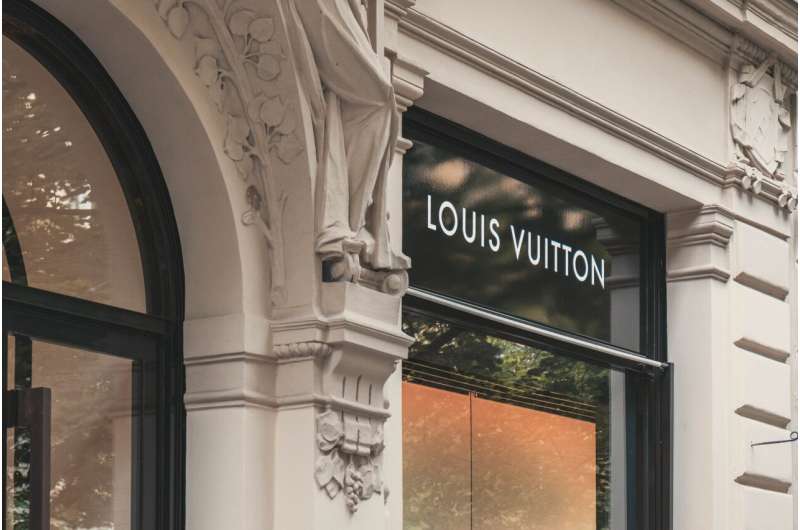This article has been reviewed according to Science X's editorial process and policies. Editors have highlighted the following attributes while ensuring the content's credibility:
fact-checked
peer-reviewed publication
trusted source
proofread
Perceptions of income inequality drive consumers' interests in counterfeit luxury goods, study finds

The study found that as perceptions of income inequality increased, consumers value counterfeit luxury products for their "egalitarian value," a worth associated with the fake goods' perceived ability to restore equality in society.
Researchers conducted five studies online and in person, involving more than 2000 participants from Sweden and the United States. The studies examined participants' views on counterfeit luxury goods, using samples ranging from designer Rolex wristwatches and Gucci handbags to Burberry and Louis Vuitton scarves. The results showed that perceived income inequality does increase consumers' interests in buying counterfeit goods through the egalitarian value of counterfeits, but it is not the only reason behind buying the items.
Dr. Liu, Lecturer and Assistant Professor in Marketing at Bayes Business School (formerly Cass), said, "Previous research tells us that beliefs about how economic resources are allocated can affect people's behaviors especially when it comes to luxury consumption. We wanted to know how these beliefs may be linked to why people buy counterfeit luxury items."
Liu adds, "Rather than serving as a cheap status symbol for those who are unable to afford the full price luxury item, we argue that counterfeit luxury goods may be used by consumers as a means of rejecting the exclusive markets and companies.
"Purchasing a fake Gucci handbag or Burberry scarf may help consumers feel like they're leveling the playing field of the luxury goods market by breaking down market restrictions created by these overly exclusive luxury companies. This is not to say that buying counterfeit products actually restores market equality, but it might be the way that consumers feel and how they cope with inequality."
Assistant Professor Dr. Wiley Wakeman, Department of Management and Organization, Stockholm School of Economics, added, "We think this research is particularly interesting as it links growing inequality to 'deviant' forms of consumption—such as buying counterfeit luxury goods, suggesting that buying counterfeits is not driven by economic reasons per se, but to achieve a sense of social equality.
"It also begs the downstream question as to whether mechanisms that increase brand exclusivity—such as maintaining waitlists for luxury watches or handbags—may counterintuitively manifest the egalitarian value in and the consumption of counterfeits, explaining why consumers might buy these goods."
The paper, "The egalitarian value of counterfeit goods: Purchasing counterfeit luxury goods to address income inequality," is published in the Journal of Consumer Psychology.
More information: Jingshi (Joyce) Liu et al, The egalitarian value of counterfeit goods: Purchasing counterfeit luxury goods to address income inequality, Journal of Consumer Psychology (2024). DOI: 10.1002/jcpy.1431
Journal information: Journal of Consumer Psychology
Provided by City University London



















